
Like hundreds of thousands of other Pakistanis, one of my favorite pastimes is flipping through the news channels while lying in bed. Switching routinely from CNN to Sky, from BBC to Al Jazeera, I saw that the Yemen conflict was making headlines. Next, the Iranian foreign minister was in Pakistan, holding a joint press conference with Sartaj Aziz. What was all this about, I wondered. I turned to ARY, Geo, Dunya, Dawn. The usual rumpus during Imran Khan’s perennially high-voltage, self-righteous press conference. Let’s try PTV, I thought. Ah, here was the joint press conference of the Iranian foreign minister and his Pakistani counterpart. But how could the rest of the national media have ignored such a significant visit, I wondered, and instead let petty domestic politics rule their news agenda?
This is just one of many instances that has appalled me. When I discussed this with Fahd Husain, Director News at Express TV, and asked why the electronic media had neglected to cover the Iranian foreign minister’s visit, he said, “Foreign affairs are generally a low priority for TV channels because they do not provoke much interest among the Urdu viewers. Deep policy issues are boring for TV audiences.”
I put this argument to Salman Danish, CEO of Media Logic. He runs this company that claims to be the “real controller” of media trends in Pakistan. Media Logic maintains popularity surveys of all television channels and programs literally from minute to minute. It operates rating meters (the exact number is not available or is, at the very least, debatable) in all the major cities and monitors media trends in this way.
Salman says that the problem of giving local news preference over important international events is just another dimension of the tendency to ignore content quality in pursuit of higher ratings. He points to a very interesting aspect of television viewers’ economic profile: 90 percent of television viewers on Media Logic’s rating meters, he claims, earn less than Rs 50,000 a month. This implies that, for a large number of people, global politics or world issues are of zero interest while national or local issues dominate their thinking. The problem is multiplied by the fact that television is based on advertisement marketing and not on subscription models. The recent upsurge of crime shows is a direct result of this phenomenon: even the more serious television channels have begun to reenact crime stories to sensationalize the issue and ensure that people remain glued to their screens.
Muaaz Ghamidi, Director Programming at Geo, has the following to offer: “The Pakistani electronic media is not just urban or commercial, it is basically a metropolitan media. In other countries, the kind of news that city channels flog becomes a top headline on Pakistani news channels. Since there is no direct-to-home (DTH) and the entire model revolves around ratings that bring in advertisement, and 60 percent of these ratings come from Karachi, Lahore and Islamabad/Rawalpindi, the news that matters in these three cities becomes the top news.”
The other issue is that of capacity: very few TV journalists in Pakistan have the required expertise in foreign policy or the economy. Most channels don’t even have dedicated desks or experts to deal with such news so that their entire coverage is of the “he-said/she-said” variety. Both Ghamidi and Danish conclude that, as long as television is accessible only through cable, and the DTH model or subscription-based models are not allowed, television media will keep ignoring content quality and prefer juicy stories to substantive issues. Debate on serious subjects on the electronic media is fairly difficult, if not impossible, primarily because of market trends that encourage sensationalism over realism and the trivial over the substantial. Moreover, the mushroom growth of News channels may further encourage unhealthy trends.
One way of dealing with the issue would be to introduce the subscription model. This could bring about a healthy change in media trends because it would give television audiences the choice of watching uninterrupted transmissions free of advertising, while freeing media organizations from rating issues. The quality of programming would then determine the market share of media companies.
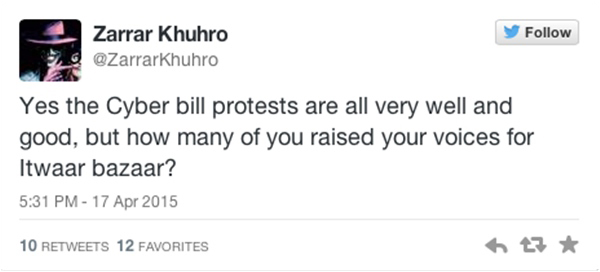


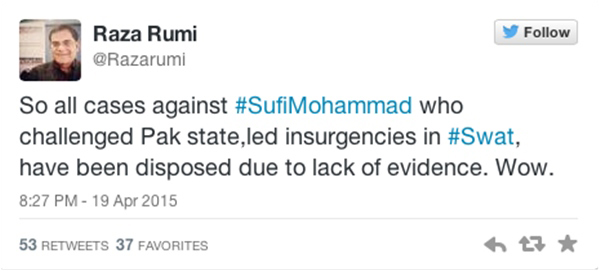
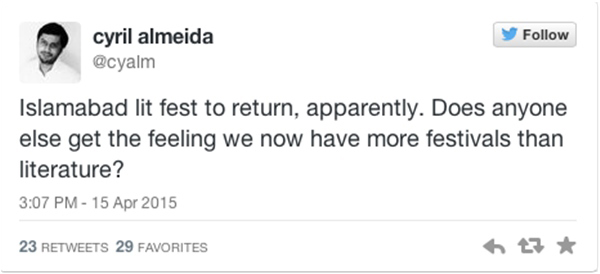
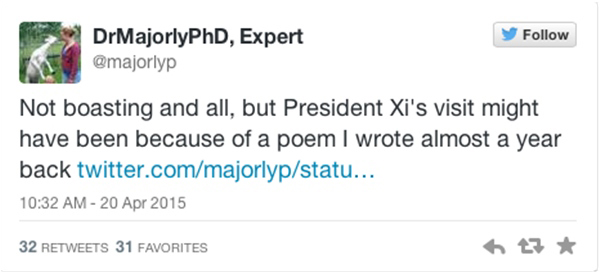
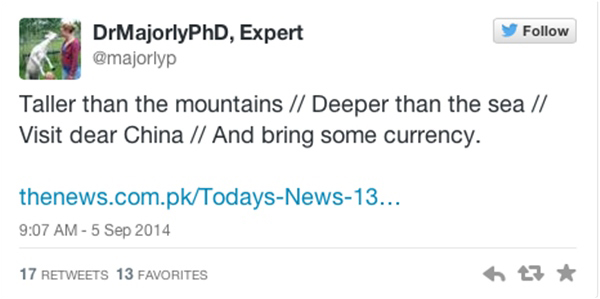

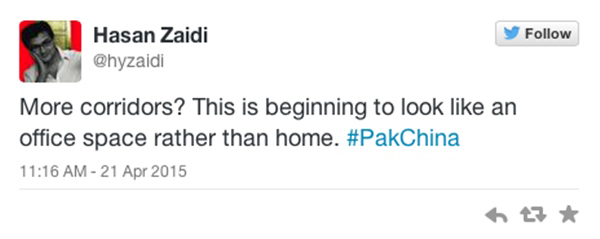
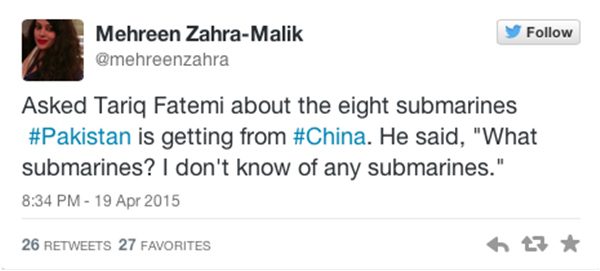
This is just one of many instances that has appalled me. When I discussed this with Fahd Husain, Director News at Express TV, and asked why the electronic media had neglected to cover the Iranian foreign minister’s visit, he said, “Foreign affairs are generally a low priority for TV channels because they do not provoke much interest among the Urdu viewers. Deep policy issues are boring for TV audiences.”
I put this argument to Salman Danish, CEO of Media Logic. He runs this company that claims to be the “real controller” of media trends in Pakistan. Media Logic maintains popularity surveys of all television channels and programs literally from minute to minute. It operates rating meters (the exact number is not available or is, at the very least, debatable) in all the major cities and monitors media trends in this way.
Salman says that the problem of giving local news preference over important international events is just another dimension of the tendency to ignore content quality in pursuit of higher ratings. He points to a very interesting aspect of television viewers’ economic profile: 90 percent of television viewers on Media Logic’s rating meters, he claims, earn less than Rs 50,000 a month. This implies that, for a large number of people, global politics or world issues are of zero interest while national or local issues dominate their thinking. The problem is multiplied by the fact that television is based on advertisement marketing and not on subscription models. The recent upsurge of crime shows is a direct result of this phenomenon: even the more serious television channels have begun to reenact crime stories to sensationalize the issue and ensure that people remain glued to their screens.
Muaaz Ghamidi, Director Programming at Geo, has the following to offer: “The Pakistani electronic media is not just urban or commercial, it is basically a metropolitan media. In other countries, the kind of news that city channels flog becomes a top headline on Pakistani news channels. Since there is no direct-to-home (DTH) and the entire model revolves around ratings that bring in advertisement, and 60 percent of these ratings come from Karachi, Lahore and Islamabad/Rawalpindi, the news that matters in these three cities becomes the top news.”
The other issue is that of capacity: very few TV journalists in Pakistan have the required expertise in foreign policy or the economy. Most channels don’t even have dedicated desks or experts to deal with such news so that their entire coverage is of the “he-said/she-said” variety. Both Ghamidi and Danish conclude that, as long as television is accessible only through cable, and the DTH model or subscription-based models are not allowed, television media will keep ignoring content quality and prefer juicy stories to substantive issues. Debate on serious subjects on the electronic media is fairly difficult, if not impossible, primarily because of market trends that encourage sensationalism over realism and the trivial over the substantial. Moreover, the mushroom growth of News channels may further encourage unhealthy trends.
One way of dealing with the issue would be to introduce the subscription model. This could bring about a healthy change in media trends because it would give television audiences the choice of watching uninterrupted transmissions free of advertising, while freeing media organizations from rating issues. The quality of programming would then determine the market share of media companies.
On Twitter this week...











